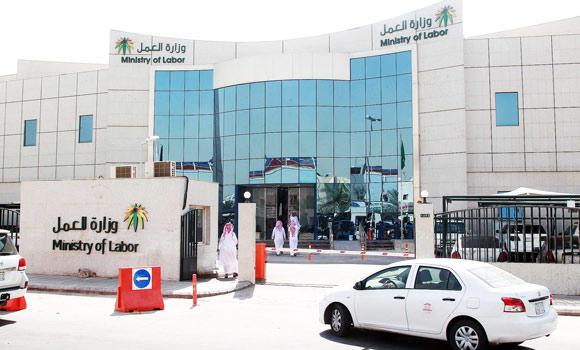
Riyadh, Jan 4: The Labor Ministry intends to allow full-time Saudi employees to work on a part-time basis for other companies provided that the job duration does not exceed four hours a day, or 24 hours a week.
Prospective part-time employees will have to seek their employers' approval if the work is of a similar nature to their full-time job.
The ministry has published a draft regulation with 17 articles regulating part-time employment in Saudi Arabia, which is limited to Saudis.
The ministry said that besides protecting the rights of both employers and employees, the regulation would meet growing demand for the national labor force and increase the monthly income of Saudi workers.
Part-timers will be included in the company's nationalization quota upon condition that the employee is registered with the General Organization for Social Insurance (GOSI) with a minimum salary of SR1,500.
Saudization rates will not apply to employees who work for more than two entities since Saudis can work on a part-time basis for more than two companies according to the draft regulation.
Part-time work should be undertaken according to a written contract that defines contract duration, working hours, pay, perks and conditions. Both employer and employee can renew the contract at their discretion.
Welcoming the draft regulation, Dr. Ibrahim Al-Qayid, a member of the National Society for Human Rights, said that employing part-time Saudi workers can be “an efficient way to keep costs down” in sectors where one does not need full-time workers.
“This will facilitate hiring of highly-skilled and experienced staff members, when an employer is not able to bring in someone on a full-time basis,” he said.
If enforced, the draft regulation will provide opportunities to parents with children, who may not want to work full time. “Many such parents, working on part-time basis, can bring a wealth of experience and expertise,” said Al-Qayid. “A business entity, by hiring part-timers, can use more workers at peak times and extend operating hours by using part-time workers in the evening or at weekends.”
The draft stipulates that the part-time job should be undertaken during official working hours and according to the needs and circumstances of the business. The ministry's rules and regulations are to be taken into account, especially with regards women's working hours.
If work exceeds four hours a day, overtime dues will be calculated according to the labor system. Dues for less than four hours of work per day will be calculated based on the going hourly rate.
The draft law stipulates that part-time workers be allowed holidays, weekend breaks and paid official holidays. Part-time workers are also to enjoy health insurance benefits and sick leave.
Part-time workers are covered by rules and regulations under labor laws with regards work hazards and injuries and will be registered with social security by any organization with which they work.
Article 10 states that part-time employees should be registered with social security services even if they work in multiple establishments. In addition, salary payments will be made according to each establishment's procedures.
Part-time workers' contracts can be converted into full-time contracts. In addition, part-time work will form a percentage of the full-time employment term.
Article 13 states that part-time employees not be excluded from vocational development and training and should get the same stipend as full-time employees. It also states that part-time employees can be subjected to the same probation period and that such a stipulation should be written in the contract. Part-time workers are also entitled to rewards and annual raises according to the work hours defined in the contract.






Comments
Add new comment